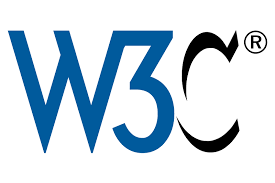 University of Illinois efforts have led to the publication of three new technical standards for web annotation, which will allow linking and sharing of comments across websites. This effort was led by the W3C web annotation working group, co-chaired by Tim Cole, Mathematics Librarian and Professor, University Library, and Dr. Robert Sanderson from the J. Paul Getty Trust.
University of Illinois efforts have led to the publication of three new technical standards for web annotation, which will allow linking and sharing of comments across websites. This effort was led by the W3C web annotation working group, co-chaired by Tim Cole, Mathematics Librarian and Professor, University Library, and Dr. Robert Sanderson from the J. Paul Getty Trust.
Web annotations offer a way for internet users to ‘write in the margins’ of web pages–a practice that has not been fully standardized across publishers in the past. These standards will allow for the ease of sharing notes across the web, and allow readers to decide how they experience such content. The three web standards approved the spring include an annotation data model, vocabulary, and protocol.
The University Library’s involvement in web annotation research goes back a decade. In 2007, a proposal made by U of I librarians Tim Cole and Michael Norman in collaboration with Bill Parod, Architect for Scholarly Technologies at Northwestern University, was accepted by the Andrew W. Mellon Foundation. This work facilitated the annotation of web resources related to digitized books. Involved in this project were U of I library faculty and academic professionals including Bill Ingram, MJ Han, Tom Habing and Wei Zhang, as well as Cole.
Work on the Mellon grant led to the Open Annotation Collaboration, a bigger project spanning from 2009-2013 and involving multiple institutions around the globe, including the University Library and Graduate School of Library and Information Science (now the School of Information Sciences). Core participants in the OAC from Illinois included Tom Habing, Tom Kilton, Jordan Vannoy, Allen Renear, and Carole Palmer. The University Library still manages the Open Annotation website.
The OAC and other research led by the library eventually led to the charter of a W3C Web Annotation Working Group in 2014. U of I participants Tom Habing, Janina Sarol, and Jacob Jett joined this working group, co-led by Cole, which finally published its recommendations in February of this year.
Commenting on the release of the recommendations, Cole recognized this kind of work as something that shows “impact beyond journal articles and conference papers that can be attributed to the research and service librarians do.” The University Library’s contributions to research manifest themselves a variety of ways in the field of library and information science, and Cole and his team’s dedicated work on these standards represent their passion and commitment advancing scholarship as well as public information resources.

